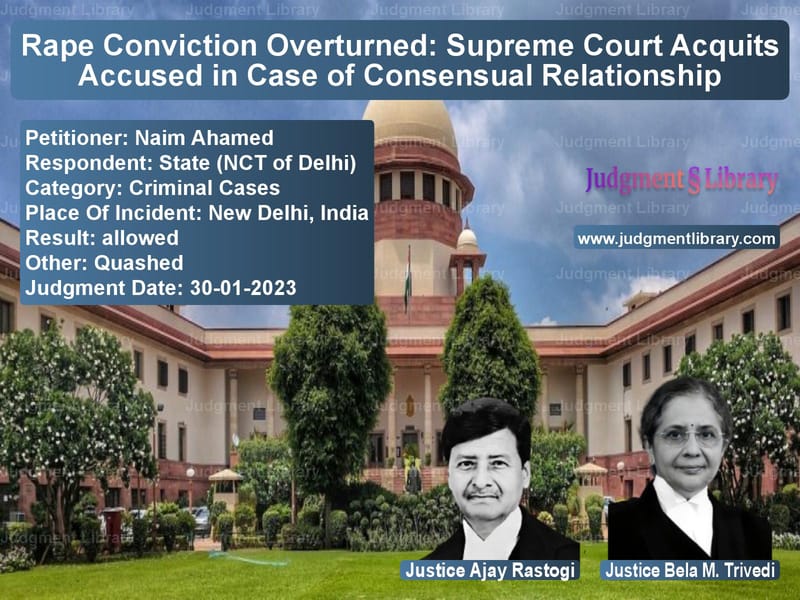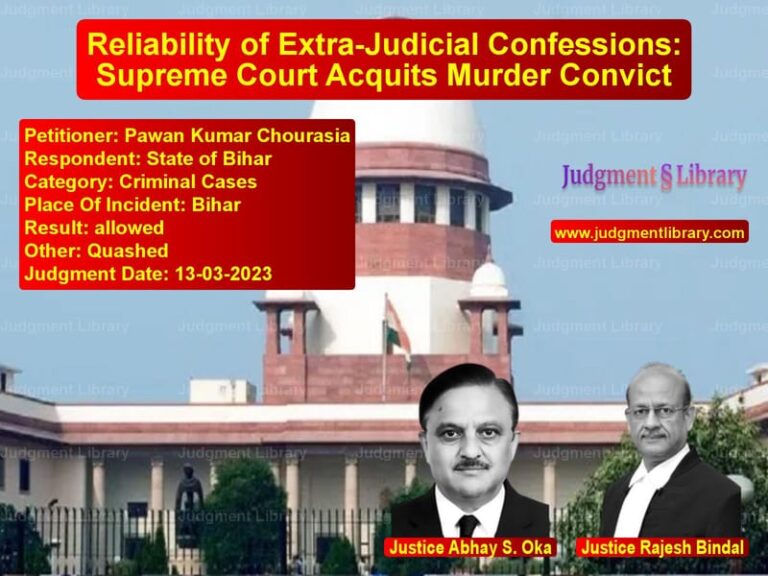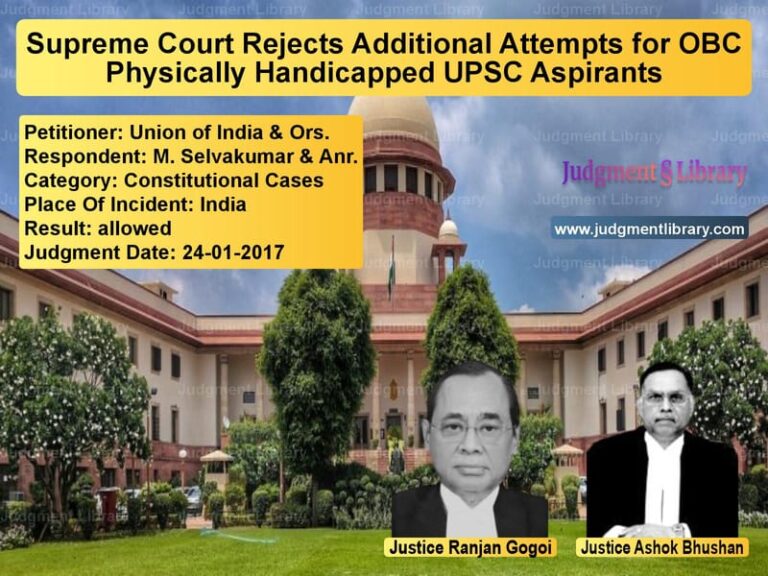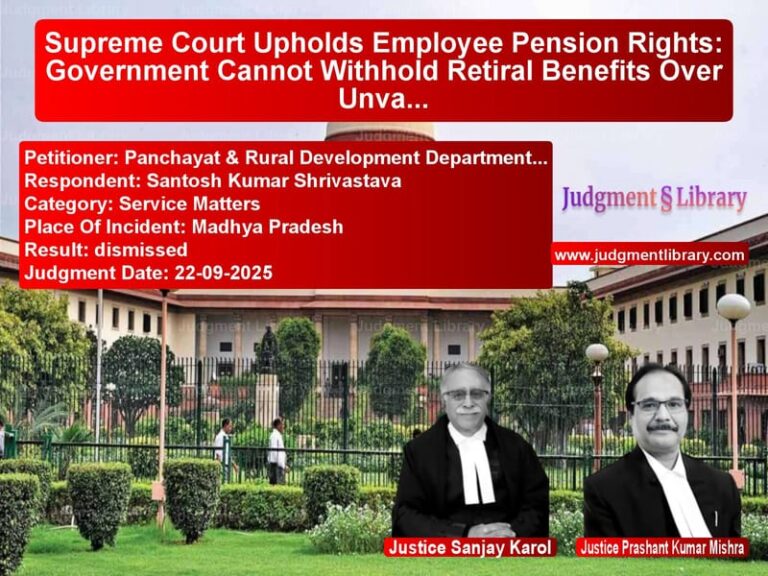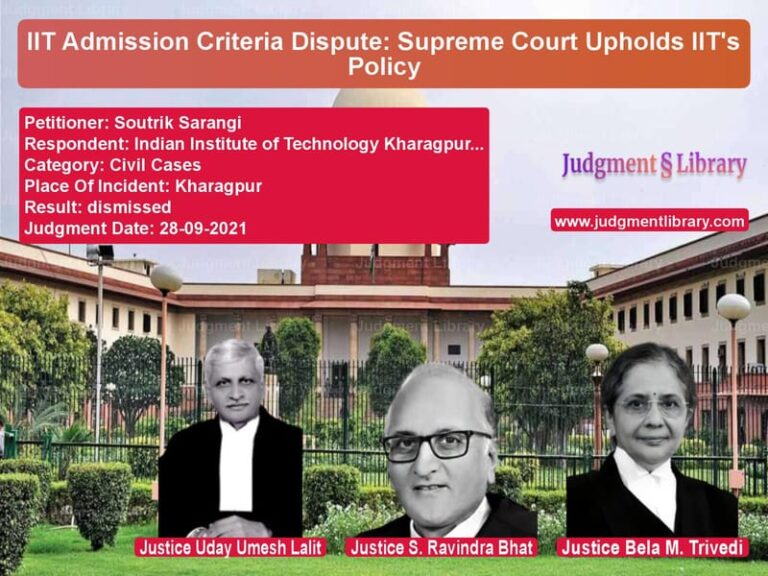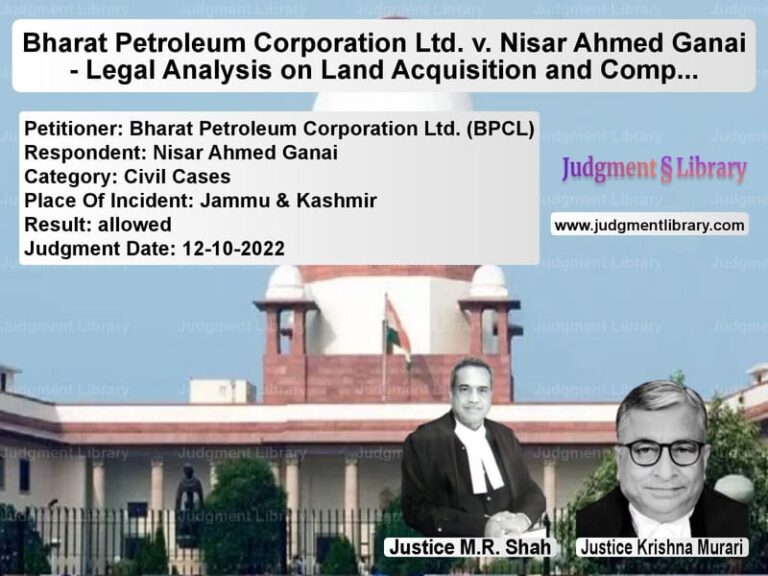Rape Conviction Overturned: Supreme Court Acquits Accused in Case of Consensual Relationship
The case of Naim Ahamed vs. State (NCT of Delhi) highlights a crucial legal issue in rape cases—whether consent obtained under the false promise of marriage amounts to rape under Section 376 of the Indian Penal Code (IPC). In a significant judgment delivered on January 30, 2023, the Supreme Court overturned the conviction of the accused, emphasizing the distinction between consensual sex and rape.
Background of the Case
The appellant, Naim Ahamed, was convicted under Section 376 IPC by the Sessions Court and sentenced to 10 years of rigorous imprisonment along with a fine and compensation to the prosecutrix. On appeal, the High Court reduced the sentence to 7 years but upheld the conviction. The appellant then approached the Supreme Court, arguing that the sexual relationship was consensual and did not fall under the legal definition of rape.
Prosecution’s Allegations
The prosecutrix alleged that:
- She was persuaded by the accused that her husband was not earning sufficiently, and he (the accused) would provide for her.
- The accused promised to marry her and continued a sexual relationship with her, leading to her pregnancy.
- After giving birth in 2011, she continued the relationship with the accused in a separate rented home.
- In 2012, she discovered that the accused was already married and had children.
- She still continued to live with him until 2015, when disputes arose, leading to her filing a rape complaint.
Defense’s Arguments
The defense countered that:
- The prosecutrix was aware of the accused’s marital status.
- The relationship was consensual and continued for years without coercion.
- The complaint was filed only after the accused refused financial demands from the prosecutrix.
- The prosecution failed to prove that the consent was obtained under a misconception of fact.
Supreme Court’s Observations
The Supreme Court, comprising Justice Ajay Rastogi and Justice Bela M. Trivedi, made key observations regarding the nature of consent in cases involving false promises of marriage.
“The prosecutrix was a married woman with three children and was intelligent enough to understand the consequences of her actions. She continued the relationship for years even after discovering the accused was married.”
The Court also emphasized:
- There is a difference between a breach of promise and a false promise made solely for sexual exploitation.
- The prosecutrix was not under any coercion or threat but willingly continued the relationship.
- She even divorced her husband and moved in with the accused after knowing his marital status.
- The complaint was filed years later, only after financial disputes arose.
Legal Precedents Considered
The Court relied on previous judgments to establish that:
- Consent obtained under a false promise of marriage constitutes rape only if the promise was made solely to exploit the woman.
- In cases like Uday vs. State of Karnataka and Deelip Singh vs. State of Bihar, the Court had ruled that a false promise must exist from the very beginning to constitute rape.
Final Judgment
The Supreme Court held that:
- The accused did not commit rape as defined under Section 375 IPC.
- The relationship was consensual, and the prosecutrix was aware of the accused’s marital status.
- The conviction under Section 376 IPC was overturned.
- The accused was acquitted but was still required to pay compensation for the child born out of the relationship.
Impact of the Judgment
This ruling has significant implications:
- It reaffirms that not all broken promises of marriage amount to rape.
- It provides clarity on the legal concept of consent under misconception of fact.
- It ensures that criminal law is not misused to settle personal disputes.
Conclusion
The Supreme Court’s decision in Naim Ahamed vs. State (NCT of Delhi) sets a crucial precedent for similar cases. It highlights the importance of examining the intent behind a promise of marriage and distinguishes between false promises made for exploitation and genuine relationships that did not materialize into marriage.
Petitioner Name: Naim Ahamed.Respondent Name: State (NCT of Delhi).Judgment By: Justice Ajay Rastogi, Justice Bela M. Trivedi.Place Of Incident: New Delhi, India.Judgment Date: 30-01-2023.
Don’t miss out on the full details! Download the complete judgment in PDF format below and gain valuable insights instantly!
Download Judgment: naim-ahamed-vs-state-(nct-of-delhi)-supreme-court-of-india-judgment-dated-30-01-2023.pdf
Directly Download Judgment: Directly download this Judgment
See all petitions in Bail and Anticipatory Bail
See all petitions in Rape Cases
See all petitions in Criminal Defamation
See all petitions in Judgment by Ajay Rastogi
See all petitions in Judgment by Bela M. Trivedi
See all petitions in allowed
See all petitions in Quashed
See all petitions in supreme court of India judgments January 2023
See all petitions in 2023 judgments
See all posts in Criminal Cases Category
See all allowed petitions in Criminal Cases Category
See all Dismissed petitions in Criminal Cases Category
See all partially allowed petitions in Criminal Cases Category

